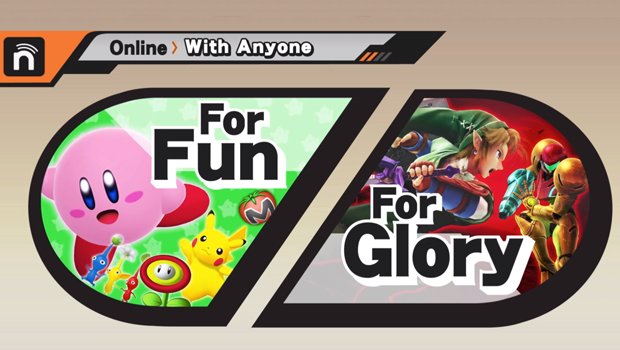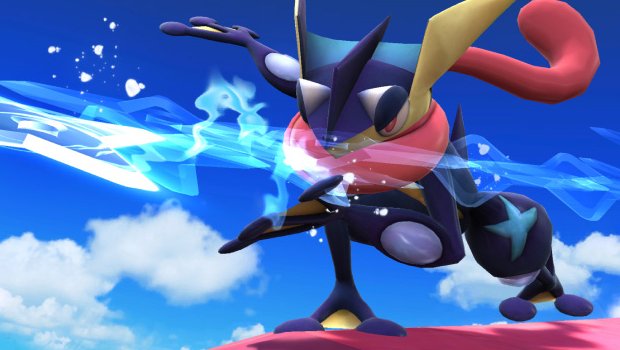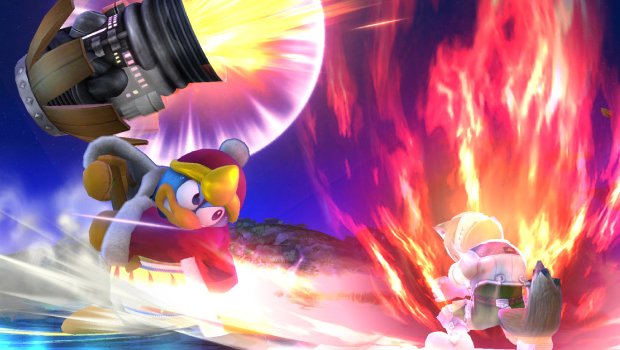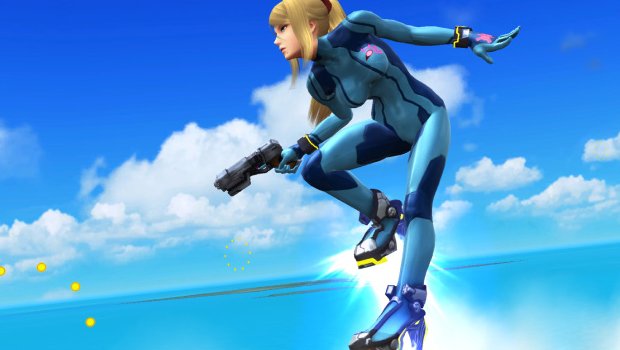Nintendo finally does right by hardcore fighting fans with Smash Bros.
It's a good day to be a Smash Bros. fan--and an even better one if you love watching high-level Smash Bros. play. Today's Nintendo Direct revolved entirely around Smash Bros. Wii U/3DS--the latter coming in Summer 2014, the former in Winter 2014. And while the Internet and GamesRadar offices are abuzz with talk of new modes and character reveals, I'm actually most intrigued by the announcement of the online functionality and balance changes that minimize randomness. In particular, the new "For Glory" mode of online play sends a message to Smash Bros. players: we want to foster and cater to skilled players just as much as casual fans.

If you missed the Nintendo Direct and/or became too overcome by glee to take in new information, here's a quick refresher. Both versions of the new Smash Bros. have online functionality, divided into two modes of play: For Fun, and For Glory. For Fun is the classic Smash Bros. free-for-all, with all items enabled and randomized stages--except Final Destination. Such an iconic stage is only available online in the For Glory mode of play, which is essentially the Smash Bros. version of Ranked matches.
For Glory takes everything you know about expert-level Smash Bros. and condenses it into a single online environment. Matches can be one-on-one duels, there are no items turned on, and Final Destination is the only battlefield available. Since Smash Bros. Melee, Final Destination has been the de facto stage for proving one's skill. The flat, predictable nature of the stage lets you focus purely on the fight at hand, without shifting platforms or ridiculous items getting in the way. In an ingenious move, Smash Bros. for Wii U and 3DS will include a Final Destination version of almost all the stages, so expert players won't have to stare at the same in-space theme for hours on end.

While there don't seem to be any plans for a formal ranked ladder (the confusing reverse leaderboard that is Global Smash Power notwithstanding), the new Smash Bros. will include matchmaking so that newcomers won't be pitted against the best players. That's invaluable for the growth of an online community, because the best players can only get better if they're constantly playing against competitors of their own caliber. And unlike the For Fun mode, which only records your total wins, For Glory keeps track of your win-loss ratio. A dedicated fighting game player wouldn't have it any other way.
On top of the normalized settings of For Glory, game director Masahiro Sakurai emphasized that there will be repercussions for anyone who detracts from the online experience--as with any self-respecting fighting game. If you are constantly rage-quitting matches, griefing players by only attacking them, purposely killing yourself, or out-and-out cheating, you will get banned. Sakurai implied that the duration of your ban will increase with repeat offenses. Recent fighters like Killer Instinct have implemented similar punishments to great effect, so this is a welcome modern addition to the bare-bones, unregulated online play seen in Brawl.
Combined, these changes should do wonders to improve Nintendo's image, proving that it's not a company that's miles behind the curve in regards to the online gaming space. Sakurai also made a point about calling out the 60FPS frame rate for both the 3DS and Wii U versions, which sounds like a statement aimed directly at appeasing professional-level players. The average gamer appreciates the smoothness of 60FPS, but probably can't tell the difference in frames during a match. But since pro players need to know how every frame of their attack animations function, they'll definitely appreciate the high frame rate.
And changes aimed at improving high-level Smash Bros. play aren't just limited to new online modes or technical improvements. Remember tripping, the totally random Smash Bros. Brawl mechanic that everyone hated? Randomness in fighting games is awful: the person on the receiving end feels like they got screwed over by an unpredictable force, and their opponent feels like they only won by chance. Tripping is gone in the new Smash Bros., but Nintendo has gone as far as to rebalance the variable aspects out of existing characters. Olimar's Pikmin now pop up in a reliable order, and King Dedede's projectiles only come in one variety.
Sign up to the GamesRadar+ Newsletter
Weekly digests, tales from the communities you love, and more

In addition, players won't have to worry about switching everything up while playing as or against Samus, Zelda and Charizard, now that their alternate forms have been turned into standalone fighters. All these changes go a long way towards making the fights feel more consistent, and emphasize player skill over dumb luck. (I wouldn't be surprised if Peach's turnips also get standardized in the same manner.)
So what does all this really mean? Nintendo has finally come to appreciate its most dedicated fans. This is the same company that wanted to shut down the Smash Bros. Melee tournament at EVO, the nation's biggest annual fighting game tourney, in 2013--which went on to break livestream records. Instead of making online matchmaking an afterthought, the newest Smash Bros. has given pro-level players their own mode to enjoy, all without detracting any fun from the casual fan.

If I have one concern, it's the discrepancy between the 3DS and Wii U release dates. Information is invaluable in a fighting game, because knowledge is power. If you know a match-up by heart, understanding everything that you and your opponent are capable of, you're going to have a huge advantage. It's almost forcing serious Smash Bros. players to pick up the 3DS version and train up, lest they know far less about the game's systems on the Wii U version's launch day.
But on the whole, Nintendo has done everything in its power to make high-level Smash play the best it can be. After the slapdash implementation of online play in Smash Bros. Brawl, I had my doubts--but after today's news, Nintendo has asserted that they have the interest of the players, be they rookies or professionals, at heart. For people who like to play--or watch--Smash Bros. in its purest, most skill-intensive form, this is an exciting time.
Oh, and the fact that Nintendo credits Mega Man's uppercut move to Marvel vs. Capcom is incredible. It just had to be said.
Lucas Sullivan is the former US Managing Editor of GamesRadar+. Lucas spent seven years working for GR, starting as an Associate Editor in 2012 before climbing the ranks. He left us in 2019 to pursue a career path on the other side of the fence, joining 2K Games as a Global Content Manager. Lucas doesn't get to write about games like Borderlands and Mafia anymore, but he does get to help make and market them.



